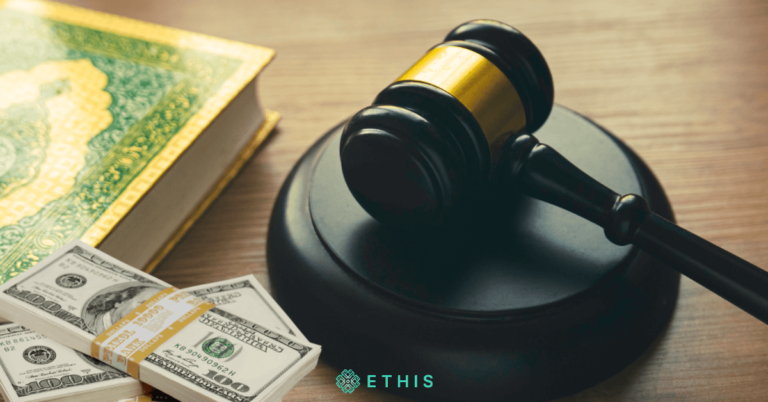
By Abdulazeem Abozaid, Professor at Qatar Foundation
The concept of sukuk involves various Shariah issues pertaining to sukuk guarantees. Some of these guarantees are acceptable while some involve Shariah concerns. They are the following:
Provision of implicit capital guarantee through inclusion of incentive clause combined with auction sale
Incentive and auction sale have been used as a strategy in some sukuk structures to provide a face value protection to the sukuk-holders.
Since the undertaking by the sukuk manager/issuer to redeem the sukuk at their face value (repurchase of the assets sold at the same original selling price) is unlawful from a Shariah perspective, in view of the capital protection such undertaking achieves, some Sukuk issuances involved a contrivance to this basic rule.
In the prospectus, it is stipulated that the sukuk-holders waive to the sukuk manager/issuer upon redemption whatever amount exceeds the face value of the sukuk. Upon maturity of the sukuk, the sukuk underlying assets are offered for sale at auction, whereby the sukuk manager/issuer is one of the bidders. Therefore, no one can compete with or overbid the sukuk manager/issuer as the amount in excess of the face value of the assets eventually reverts to him by virtue of the incentive. Thus, although such a prospectus does not involve an undertaking to redeem the sukuk at face value, implicitly it does.
Effectively, the auction in the above structure is useless, as it is only meant to justify providing the sukuk-holders with capital protection, and on the other hand, it does not give them the chance to make any capital gain, thanks to that incentive.
Guaranteeing the face value of the Sukuk by a third party


If the guarantee to the face value of the sukuk or their return is issued by a third party that is truly independent of both sukuk parties, such that it can be considered a pure donation, then the guarantee can be deemed permissible. This is because it is donation (hiba) in essence even though it is called ‘guarantee’.
Effectively, it is a gift to the beneficiaries (sukuk-holders) but conditional on their losing the invested money or failure to achieve the expected rate of return. The gharar (uncertainty) befalling the gift, due to being conditional on an uncertain event, is unobjectionable in the Shariah, because gharar can be tolerated in contracts of donation. Therefore, such a third-party guarantee may be accepted as long as it can be regarded as a pure gift and so long as it is independent of the contract that governs the relationship between the sukuk parties, as stated in the resolution issued by the OIC Fiqh Academy.
The sukuk manager guaranteeing a particular party he deals with
If the sukuk manager selects a particular party to deal with despite the risk or doubts surrounding him, such as a particular construction company or a particular supplier of commodities, then guaranteeing this party by the sukuk manager in favor of the sukuk-holders is acceptable from Shariah perspective.
However, the guarantee has to be through a separate contract and without compensation, i.e. it has to be free of charge. Such kafala (guarantee) does not involve protection of profit or capital to the sukuk-holders. At most, it implies a voluntary commitment from the sukuk manager towards the sukuk-holders that the party he selects to deal with stand up to its agreements, such as executing projects or repayment of the debts that result from contracts.
Executing such agreements may not necessarily produce a profit to the sukuk-holders or prevent a loss. Hence, such kafala does not involve a guarantee of the sukuk face value or their expected return, which makes it acceptable.
Provision of guarantees through SPV


When the SPV (Special Purpose Vehicle) is established by the sukuk issuer/manager, the guarantees of the sukuk face value or return become unacceptable, simply because the SPV is not, from a Shariah perspective, an entity that is independent from the sukuk issuer/manager.



Companies that have the same owners or shareholders (sister or parent companies) should be treated like one company according to the Shariah. This makes the guarantee given by the SPV a guarantee given by the party that established the SPV, and hence the invalidity of guarantee. In fact, if such guarantee were permissible, it would constitute a legal device to circumvent the prohibition of guaranteeing the capital or the return.
Distributing prizes to the sukuk-holders


The sukuk sponsors may announce prizes through a raffle that is aimed at attracting people to subscribe to the sukuk. Here we have different scenarios:
One: The cost of such prizes are ultimately borne by the sukuk-holders, i.e. the cost of prizes affect their distributable profit. In this case, the sukuk-holders unknowingly enter the draw with their own money. This involves deception and makes the matter akin to gambling (qimar).
Two: The cost of the prizes is not ultimately paid by the sukuk-holders. In this case, if the prizes are significant in value there is a suspicion (shubha) of gambling, because the chance of winning prizes could be the reason why some people subscribe, meaning that they pay a price for entering the raffle, which is prohibited. If, however, the prizes are insignificant in value, such that they do not constitute a real motivating factor leading people to subscribe, then they could be undoubtedly acceptable.
Likewise, if the prizes are given to all the subscribers and paid by the sukuk manager, then in order to be permissible, they should not be of high value, because if they are of high value, the process then involves guaranteeing part of the capital that the subscribers contribute towards.
This part of the capital is the value of this prize that the sukuk-holders receive, i.e. they are guaranteed some money in an investment where no money should be guaranteed. If the sukuk manager deducts the value of the prizes from the anticipated profits of the sukuk-holders, then the process involves deception (taghrīr), since there are no real prizes in this case.
Forming a reserve from the sukuk returns to cover possible future losses or unstable income


OIC Fiqh Academy has ruled that it is permissible to deduct a certain percentage of the sukuk profits at the end of every investment period, whether paid from actual profit achieved or on account of revenue expected, and to place it in a special reserve to meet the various risks that may face the investment.
However, such fatwa should be qualified by enabling the sukuk-holder to regain what has been deducted from his profit to form this fund when he withdraws from the investment, because he does not consent to deducting it as a donation. Rather, he consents in order to benefit from it himself afterwards in order to achieve a regular return. He does not leave it to others, but leaves it for himself in order to receive it at a future period, given that the whole undertaking is an investment with the aim of increasing wealth. This process differs from Islamic takaful insurance, which does not aim to be an investment or gain an investment return, but to overcome life’s hardships. Therefore, it should be the right of the sukuk holder who exits to regain that which was deducted from him when forming the reserve, if not utilised.
Reclaiming the sukuk face value after subscription ends and before the investment commences
If the sukukholder is allowed to regain the face value of the sukuk before the investment commences, then this does not involve a prohibited guarantee but a decision not to invest, which is permissible. This is because the investment, which is prone to loss, has not yet commenced. As such, by giving the sukuk-holder the right to regain the face value no prohibited guarantee occurs.
Read more about Sukuk – The Process of Issuing Islamic Bonds





Top Posts
Islamic P2P Crowdfunding Explained
Halal Money Matters: How Muslims Can Balance Deen and Dunya with Smart Islamic Finance
Halal Investments for Singapore Muslims? It’s time for a shake-up in the Islamic Investments scene.
Smart investment for making Halal money
3 Reasons Why Property Crowdfunding is the Smart Investment for You